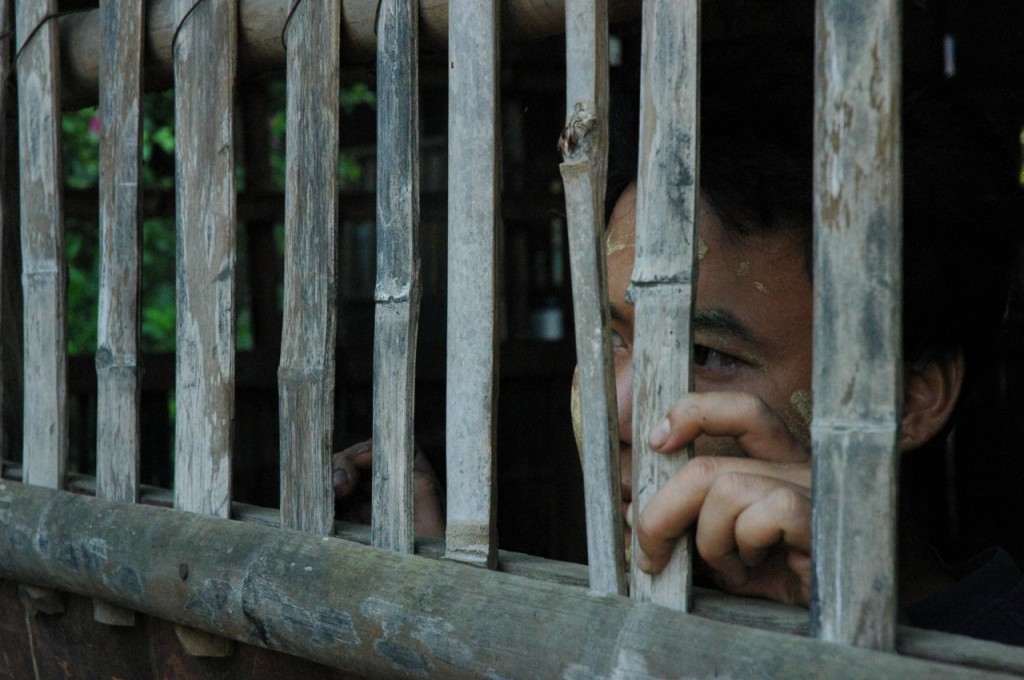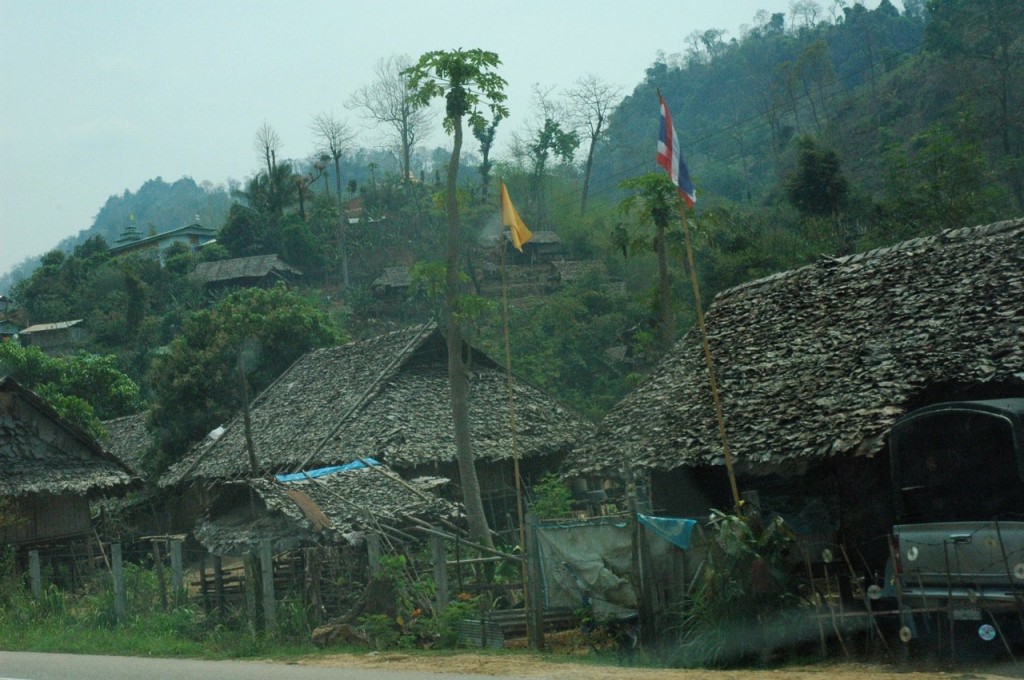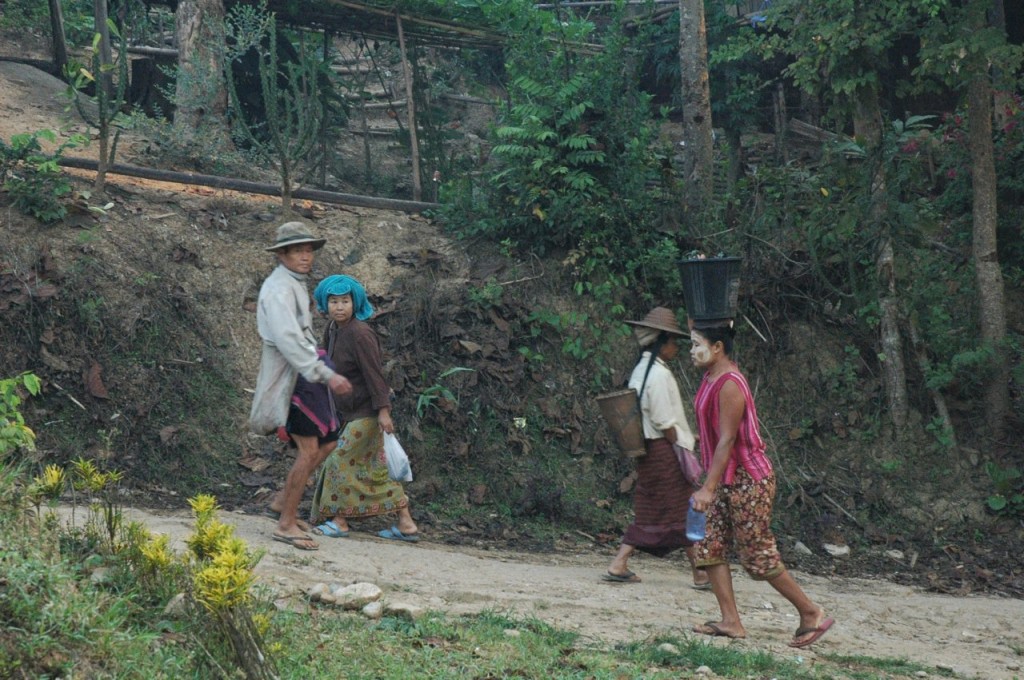As I sat in the bed of the mud-splattered truck driven by a Burmese man who called himself “James Bond,” I made the last part of the journey to a refugee camp on the Thai/Burma border with a very palpable nervous anticipation. This was a last-minute, only semi-planned trip – and I quickly realized I was in way over my head. I suppose I expected a small city made up of tents with international aid workers running around like you see in magazines.
As we curved around the road alongside the camp, I realized this place was nothing like I expected. This was not a news-worthy scene: there were no aid workers I could see, no frantic people lined up to receive their food rations, no hurried sense of panic. This was no chaotic temporary disaster-relief site. This fenced-in stretch of huts had been home to these refugees for literally decades. Young adults my own age were born and raised inside this cage. I did not expect that.
As I quickly learned during those five days, the Burmese military junta systematically targets the ethnic peoples, engaging in murder, rape, displacement, and forced labor, and they have been doing so for 60 years. I heard stories of legs blown off by landmines and of families separated and forced to hide in the jungle for years, covering the babies’ mouths when they cried for fear of the army finding them. When I asked what I could do, I heard a unanimous, “Tell our story.”
So, by God’s divine plan, I found myself in the middle of the story of Burma. I feel more than unqualified, but I ended up the co-founder of a small non-profit (www.lovemine.org) with the privilege and responsibility of sharing this very heartbreaking and inspiring story with others who may not know or even care. We call ourselves “Lovemine” because we believe in the transformative power of love. A landmine explodes pain and destruction; a lovemine explodes- well, love.
As a Christian and a social justice-minded person, I am constantly challenged to evaluate my expectations. I’ve recently realized that I’m fighting a battle I know I will lose on the only terms I can understand, which are those of this earth. Concerning this type of “peace seeking” work, Christians tend to fall along an attitude continuum that stretches from “We can fix it if we work hard enough” to the apathetic “Everything won’t be made right until heaven, so why try?”
I find myself the beholder of the “fix it” fallacy, and I believe it’s a common trap for social justice-minded Christians. We are all trying to find our “head” apart from Christ. We have a soul longing for a king – our head – to make things right, to be the ultimate answer. For those involved in social justice, we tend to try to find our head in organizations, international bodies and governments. I’m not saying these aren’t good things that can’t be instruments in bringing peace and justice, but they will never be the end-all-be-all. They are not our perfect head. On the opposite end of the spectrum there are those who recognize this world is utterly sinful and won’t be made right until the second coming, and use this to rationalize non-interference in the affairs of this world. It’s a losing battle, so why fight it?
The assumption at the heart of both attitudes is that our actions can and should be motivated by the level of productivity we expect. However counter-intuitive, we must kill this. We are called to “seek peace and pursue it” on this earth, and we must do it with the mindset that that the only one who can bring true and lasting peace is Christ. We know that no matter how hard we work, we will not redeem the world. But we are still called to preach Christ in word and deed, to the glory of God.
That’s not to say Christ is not actively redeeming people, situations, or even whole communities. The Kingdom of God is upon us, and He is at work. But if we are more focused on fixing things than being faithful, we will likely miss what He’s doing. The challenge for us is to fight a battle that we know will probably lose on earthly terms. And that’s hard to stomach. To be quite frank, I don’t know if the people of Burma will experience freedom from oppression. I hope they do. But I gained an interesting perspective on this from a very wise Karen man (The Karen are one of the many ethnic groups being oppressed in Burma). As we sat and talked in the refugee camp, he told me:
This whole situation is a blessing in disguise. Many of the Karen are Christians, and we are called to spread the good news. Since becoming refugees, we have been spread all across the world into many countries, and now we are able to be missionaries in a way we were unable to before.
I don’t know about you, but I’m humbled by that. It may not be our calling to fix the world, but if we pursue faithfulness, God will do some “fixing” of His own, maybe even through us.
———————————————
Rachel Ryon is an international activist and co-founder of Lovemine, an organization committed to telling the story of oppression taking place in Burma. To learn more, please visit the Lovemine website.














